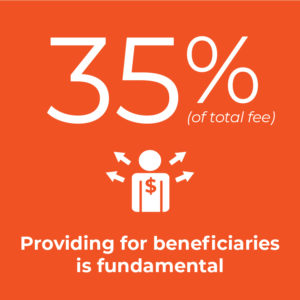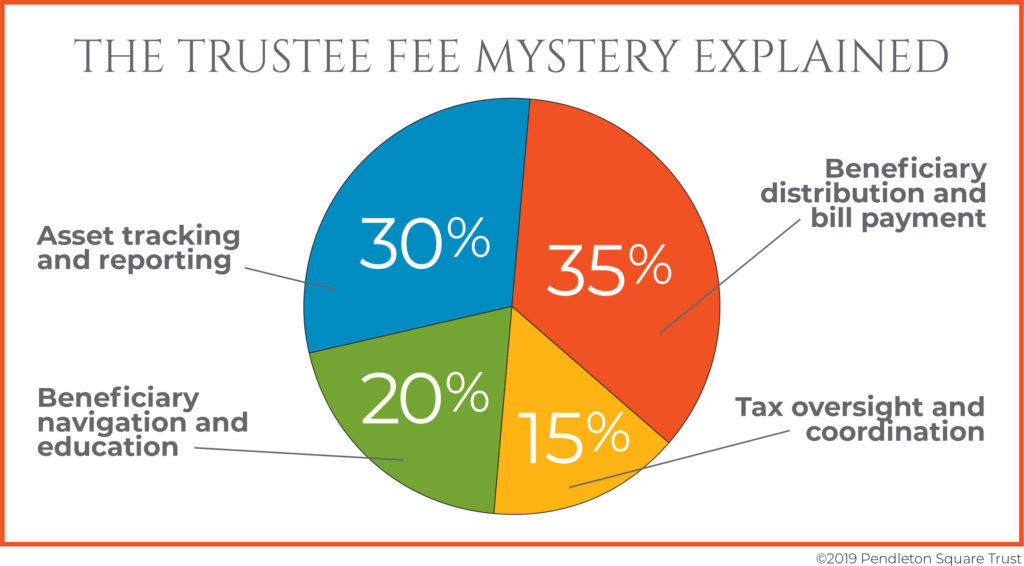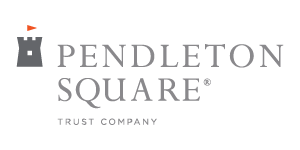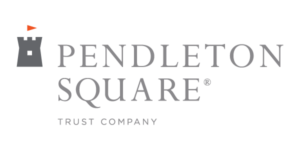We are often asked, “what goes into a trustee fee?” From a historical perspective, bank trustees applied a “bundled” market-value based fee to cover trust services – covering both fiduciary administration and investment management. In 2014, new IRS regulations began requiring banks to “unbundle” their trust fees and allocate costs between these categories – for a variety of reasons, some banks struggled with this. As an independent corporate trustee, Pendleton Square’s fee for trust services has always been clearly distinguishable from the third-party investment fees. But what goes into our trust fee?
Our policy is to sign a fee agreement with each client, so that there is clarity and transparency about what is being charged. This agreement incorporates our standard fee schedule, but also lists fees for extraordinary services, such as real estate management, life insurance management and administering oil and gas interests. In cases where the standard fee schedule should not apply, we may be able to offer a different structure that is more appropriate to the client’s situation, such as a flat annual fee as opposed to a market-based fee. To help explain what’s involved in a standard trust fee, we can generalize a few components of trust administration and approximate how costs might be allocated. Here’s a breakdown:

Beneficiary distribution and bill payment
Providing for beneficiaries is an essential element of our job. Throughout the year, we consider their discretionary distribution requests under guidelines provided in the trust, their personal circumstances, tax implications, etc. We also make required distributions – such as paying out the net income for a marital trust on a monthly or quarterly basis. In addition to beneficiary payments, we also pay a number of third-party expenses, ranging from a beneficiary’s personal bills to paying the utilities on trust-owned real estate.
![]()
Asset tracking and reporting
Asset tracking and reporting is also a critical element of what we do. Not only are there both state and federal requirements for record keeping, but clients want to know what’s going on with their trust accounts. With every transaction, we must ensure that coding is correct for tax purposes and the description is clear for client reporting. And for most trusts, we must allocate funds into separate principal and income buckets, to ensure fairness to both current and remainder beneficiaries. We provide our clients with paper statements, as well as offer access to an online portal.

Beneficiary navigation and education
Working with beneficiaries is a big reason why our trust officers chose this profession. Their goal is to help beneficiaries understand the parameters of the trust document, why it was created and ensure the grantor’s legacy. In some cases, this may include attending family meetings or providing educational seminars to younger generations.

Tax oversight and coordination
Taxes impact many of the decisions we make as fiduciaries, more so with more complex trust structures. This can include taxes from multiple states, as well as both fiduciary and corporate federal taxes. One wrong decision can expose the trust to adverse tax consequences. And for most every trust, there is the annual ritual of gathering K-1s and 1099s, having a tax return prepared, and then filing and making any payments by the deadline.
To accomplish the above effectively, a corporate trustee must have both a complex system of operations and highly qualified administrators. We spend a lot on technology to reduce risk, make timely distributions, ensure accurate reporting and provide efficient fiduciary decision-making for our clients. We also must spend on people – experts, not only in fiduciary administration, but with deep backgrounds in related areas, such as banking and family-held businesses. With Pendleton Square, you don’t receive a robo-advisor or 800 number, you receive an experienced trust officer backed by a sophisticated technology operation.

To learn more about our services as an independent corporate trustee, contact us to speak with one of our trust officers.



